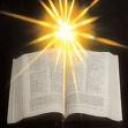 Jesus himself teaches an important lesson on hermeneutics in Luke 6. It’s not an immediately transparent passage, at least not to me.
Jesus himself teaches an important lesson on hermeneutics in Luke 6. It’s not an immediately transparent passage, at least not to me.
(Luke 6:1-10) One Sabbath Jesus was going through the grainfields, and his disciples began to pick some heads of grain, rub them in their hands and eat the kernels. 2 Some of the Pharisees asked, “Why are you doing what is unlawful on the Sabbath?” 3 Jesus answered them, “Have you never read what David did when he and his companions were hungry? 4 He entered the house of God, and taking the consecrated bread, he ate what is lawful only for priests to eat. And he also gave some to his companions.” 5 Then Jesus said to them, “The Son of Man is Lord of the Sabbath.”
6 On another Sabbath he went into the synagogue and was teaching, and a man was there whose right hand was shriveled. 7 The Pharisees and the teachers of the law were looking for a reason to accuse Jesus, so they watched him closely to see if he would heal on the Sabbath. 8 But Jesus knew what they were thinking and said to the man with the shriveled hand, “Get up and stand in front of everyone.” So he got up and stood there. 9 Then Jesus said to them, “I ask you, which is lawful on the Sabbath: to do good or to do evil, to save life or to destroy it?” 10 He looked around at them all, and then said to the man, “Stretch out your hand.” He did so, and his hand was completely restored.
Jesus could have pointed out that the accusations made against him were inaccurate interpretations of the Law of Moses. Modern commentators pretty much agree that Jesus and his apostles were not in fact violating the Law in either case.But Jesus didn’t take this tack–not directly. Rather, he said the apostles could harvest and thresh for the same reason David could eat the show bread. At first reading, this seems to create an exception to the Law out of necessity. David, like the apostles, was on a holy mission. It was more important that David and his men be fed than that the ritual-requirements of the Law be met. (And yet this really was a violation of the Law–Lev. 24:1-9).
Just so, Jesus healed the man because it was more important to do good–heal–than to satisfy the Law.
So Jesus seems to be arguing for a humanitarian exception.
And he declares himself Lord of the Sabbath, which some take to mean he’s above the Sabbath and doesn’t have to honor it. But if that’s right, then he didn’t need to give the other excuses. And it would hardly be fair for the New Testament writers to declare that Jesus perfectly fulfilled the Law and yet grant him an exception because he was above the Law.
And so I’m thinking it means something like this: You can’t know the Law until you first know the Lawgiver. The Lawgiver loves his people and made the Law to benefit his people as an act of compassion. Therefore, whenever you interpret the Law in a way that contradicts the Perfect Law of Love, who’ve misunderstood the Law, because you’ve misunderstood the Lawgiver’s heart.
Jesus (as part of the Godhead) wrote the Law. He is the author of these rules. Therefore, his mission to teach the gospel and heal the sick cannot contradict the Law. Rather, he is the fulfillment of the Law.
Jesus is thus Lord of the Sabbath in the sense that he created the Sabbath. He understands perfectly why the Sabbath exists and how the Sabbath rules should be interpreted. And they cannot be interpreted to prevent the doing of good.
In support of this theory, I’d point out that these two Sabbath Day accounts are shortly followed by the Sermon on the Plain, in which Jesus declares, “Do to others as you would have them do to you.” (Luke 6:31) In Matthew, Jesus says this saying “is the Law and the prophets” (Matt. 7:12 KJV). In other words, the Law cannot contradict the Golden Rule.
In short, Jesus is arguing hermeneutics. You start with the true Universal: the nature and character of God as he reveals himself–the God of love–and don’t get so lost in the details you forget who wrote the rules and why.




